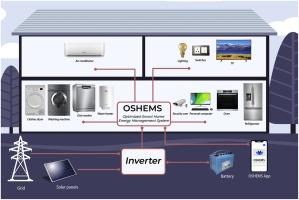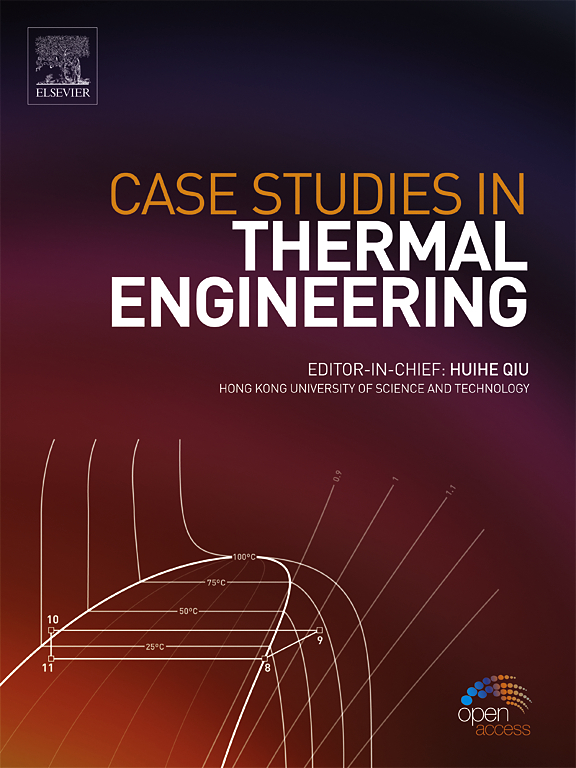Optimized smart home energy management system: Reducing grid consumption and costs through real-time pricing and hybrid architecture
IF 6.4
2区 工程技术
Q1 THERMODYNAMICS
引用次数: 0
Abstract
Utility authorities utilize various methods to promote end-user energy conservation, including higher tariff rates and demand response (DR) strategies. This paper investigates an Optimized Smart Home Energy Management System (OSHEMS) designed to minimize grid dependence and energy bills while ensuring reliable load delivery. A hybrid architecture prototype was implemented, integrating a photovoltaic (PV) array, battery storage, and the electrical grid. The system combines Maximum Power Point Tracking (MPPT) solar chargers and Pure Sine Wave (PSW) inverters for efficient energy management. The Home Energy Management Whale Optimization Algorithm (HEMWOA) was employed to optimize energy usage and achieve cost reduction while enhancing user comfort. Real-time pricing (RTP) tariffs incentivizing flexible energy consumption during peak hours were incorporated. OSHEMS manages, schedules, and monitors energy sources and appliances, determining the optimal consumption mix. Experimental results demonstrate a significant decrease in grid reliance (46.6 %) and energy costs (57.7 %) compared to non-scheduling scenarios. These findings highlight the potential of OSHEMS in promoting sustainable and cost-effective energy consumption in smart homes.

优化的智能家居能源管理系统:通过实时定价和混合架构降低电网消耗和成本
公用事业部门利用各种方法促进最终用户节约能源,包括提高电价和需求响应(DR)策略。本文研究了一种优化智能家居能源管理系统(OSHEMS),旨在最大限度地降低对电网的依赖性和能源费用,同时确保可靠的负载交付。该系统采用混合结构原型,集成了光伏阵列、电池储能和电网。该系统结合了最大功率点跟踪(MPPT)太阳能充电器和纯正弦波(PSW)逆变器,以实现高效的能源管理。家庭能源管理鲸鱼优化算法(HEMWOA)用于优化能源使用,在提高用户舒适度的同时降低成本。此外,还采用了实时定价 (RTP) 机制,鼓励在高峰时段灵活使用能源。OSHEMS 对能源和设备进行管理、调度和监控,确定最佳的消费组合。实验结果表明,与非调度方案相比,对电网的依赖程度(46.6%)和能源成本(57.7%)均有显著降低。这些研究结果凸显了 OSHEMS 在促进智能家居可持续和经济高效的能源消耗方面的潜力。
本文章由计算机程序翻译,如有差异,请以英文原文为准。
求助全文
约1分钟内获得全文
求助全文
来源期刊

Case Studies in Thermal Engineering
Chemical Engineering-Fluid Flow and Transfer Processes
CiteScore
8.60
自引率
11.80%
发文量
812
审稿时长
76 days
期刊介绍:
Case Studies in Thermal Engineering provides a forum for the rapid publication of short, structured Case Studies in Thermal Engineering and related Short Communications. It provides an essential compendium of case studies for researchers and practitioners in the field of thermal engineering and others who are interested in aspects of thermal engineering cases that could affect other engineering processes. The journal not only publishes new and novel case studies, but also provides a forum for the publication of high quality descriptions of classic thermal engineering problems. The scope of the journal includes case studies of thermal engineering problems in components, devices and systems using existing experimental and numerical techniques in the areas of mechanical, aerospace, chemical, medical, thermal management for electronics, heat exchangers, regeneration, solar thermal energy, thermal storage, building energy conservation, and power generation. Case studies of thermal problems in other areas will also be considered.
 求助内容:
求助内容: 应助结果提醒方式:
应助结果提醒方式:


